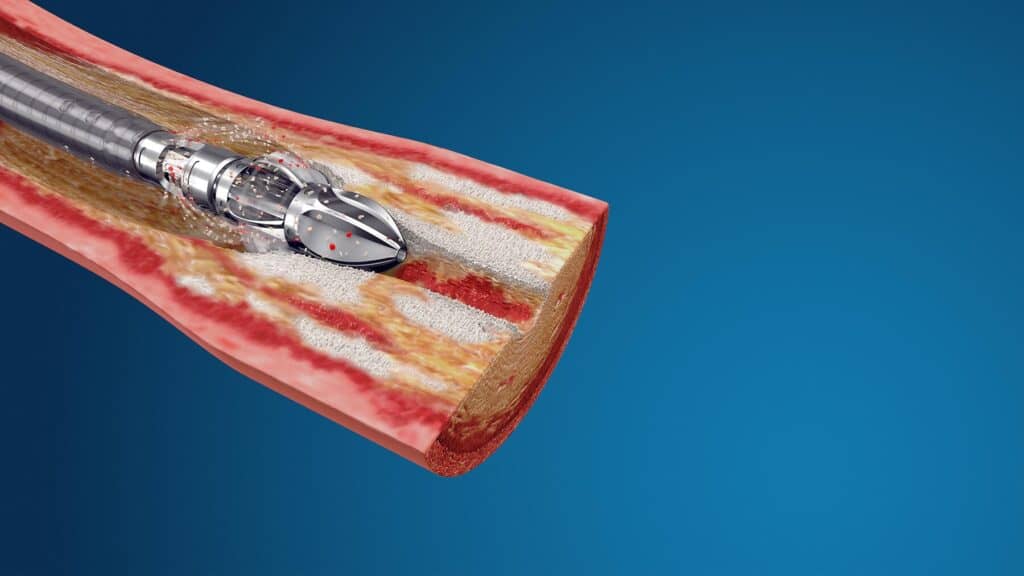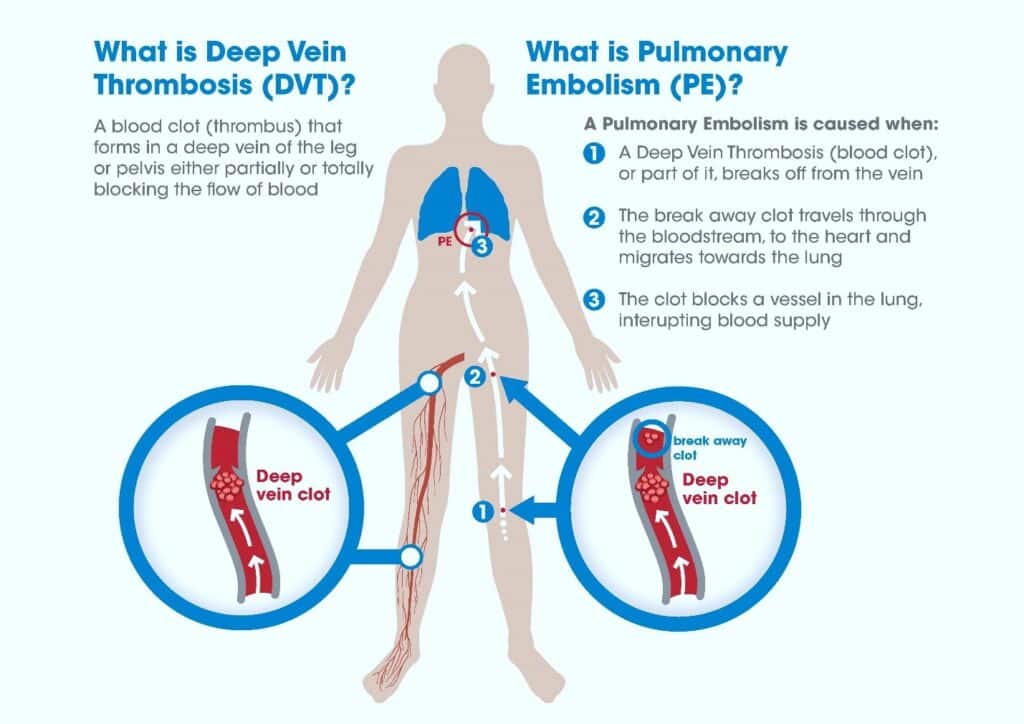We understand how important it is to have access to quality healthcare and treatment that meets your needs. Singapore’s medical system offers quality care with reputable doctors and state-of-the-art treatment for all types of conditions. This is especially so for Vascular diseases, which are not as common as many other conditions, and where it is imperative to engage an experienced Vascular surgeon who is competent in all modalities of Vascular treatment in order to achieve the best results possible.
What is Vascular Surgery Treatment?
Vascular surgery is focused on treating problems related to blood vessels and circulation within our bodies; this includes both arteries and veins. Vascular surgery deals exclusively with blood vessels outside the heart and usually the brain. It involves techniques such as bypass procedures, stenting, angioplasty (to open blocked vessels), endovascular repair (tiny surgical instruments inserted through tiny cuts), or embolization (blocking off vessels using a substance).

(image source: https://uniqarehospital.com/best-vascular-surgeon-in-pcmc/)
The Types of Vascular Surgery Treatments Available in Singapore
Singapore has continued to develop and expand its vascular surgery capabilities to provide comprehensive care for those suffering from diseases or disorders related to their blood vessels. Common treatments available here include:
- Angioplasty involves inserting and inflating a balloon into a blocked artery, helping it open up and improving circulation.

(image source: https://lamvascular.com/angio-suite/angioplasty-and-stenting/)
- Endovascular procedures is a general term referring to treating diseased arteries or veins using minimally invasive techniques. It usually involves the insertion of a sheath through an artery in the groin or arm area. Thru this sheath various balloons, stents and catheters can be introduced to perform the necessary surgery.

(image source: https://www.bostonscientific.com/content/dam/bostonscientific/pi/portfolio-group/Atherectomy/JetStream/jetstream-product.jpg)
- Vascular Bypass Surgery is an open surgery method where a healthy vein or prosthetic graft is used to bypass the blocked portion of the artery.

(image source: https://satyughealthcare.com/treatment-package/femoro-popliteal-bypass-cost-in-india)
- Pharmacological treatments are medications prescribed to prevent blood clot formation and dissolve existing clots.
These procedures can be conducted either as outpatient services or require a hospital stay, depending on the severity of the condition being treated. Other procedures available in Singapore include laser therapies (for varicose veins), endarterectomy/thrombectomy (removing arterial plaque), and embolization (injecting substances into flow vessels).
Common Diseases and Treatments Related to Vascular Surgery
Vascular diseases are common, especially in Singapore’s aging population. Some diseases that a vascular surgeon may treat include:
- Atherosclerosis: hardening of arteries due to the build-up of fatty deposits on their walls, which affects blood flow and increases risk for vascular complications; treatment involves angioplasty, stenting, or bypass surgery.

(image source: https://www.nhlbi.nih.gov/health/atherosclerosis)
- Deep Vein Thrombosis (DVT): a condition caused by clots forming in deep veins; treatment involves anticoagulant drugs or surgical removal of the clot.

(image source: https://www.capital-medical.com/products/dvt-pe-treatment/)
- Venous insufficiency: abnormal valve function in veins resulting in pooling of blood and formation of varicose veins; treatment includes lifestyle changes, compression stockings, or laser therapy to seal off the affected area.

(image source: https://veinscarolina.com/a-discussion-about-venous-reflux-with-vein-specialist-dr-david-draughn/)
- Ovarian Vein Embolisation is a treatment for those with Pelvic Congestion Syndrome. It is a procedure where a thin catheter is inserted into the patient’s groin vein. Afterward, titanium coils are inserted to close off affected veins.

(image source: https://vein.stonybrookmedicine.edu/disease/pelvic-congestion-syndrome)
The Different Types of Stenting Available in Singapore
Stenting is a procedure in which a metal tube is inserted into a blood vessel to improve blood flow and reduce the risk of blockage. In Singapore, there are a variety of stenting options available.

(image source: https://www.lacmedical.com/coronary-artery-disease/)
- Balloon-expandable stents are inserted into the vessel and then inflated to widen the vessel and improve blood flow.
- Self-expandable stents are inserted into the vessel and expand on their own to widen the vessel and improve blood flow.
- Drug-eluting stents are coated with a special drug that helps to reduce the recurrence of lumen narrowing and blocking the vessel.
The Benefits of Vascular Surgery Treatment in Singapore
Vascular surgery treatment in Singapore can provide many benefits. These include improved blood flow and circulation, reduced pain, and improved overall health and wellbeing. Additionally, vascular treatments can help reduce the risk of blockages, aneurysms, and other vascular conditions. Treatment options such as endovascular procedures, stenting, angioplasty, and other minimally invasive treatments can provide quick and effective results with minimal discomfort or downtime.
What to Expect During a Vascular Surgery Procedure
Each vascular surgery procedure is unique and will depend on the patient’s condition and the type of treatment being performed. Generally, open surgery requires a general anesthetic, and the patient will be monitored for any complications during the procedure. Endovascular procedures are typically performed under local anesthesia and require minimal recovery time. In addition to this, there are minimally invasive procedures that have less downtime and faster recovery compared to open surgery.
Vascular surgery treatment in Singapore can provide many benefits. The main advantage is improved blood flow and circulation, which can reduce the risk of blockages, aneurysms, and other vascular conditions. Additionally, treatments such as endovascular procedures, stenting, angioplasty, and other minimally invasive treatments can provide quick and effective results with minimal discomfort or downtime. On the other hand, vascular surgery treatment can also have some risks and side effects, including infection, bleeding, and stroke.
The Risks and Recovery Process After Vascular Surgery and Treatment
Vascular surgery treatment can have some risks and side effects, including infection, bleeding, and stroke. It is important to discuss the risks of the procedure with your doctor and to ensure that the procedure is being performed by an experienced and qualified surgeon. Additionally, it is important to follow the instructions of your doctor and to take any prescribed medications as directed.
The recovery process after vascular surgery treatment will depend on the type of procedure performed. Generally, open surgery requires a longer recovery time, and the patient may need to stay in the hospital for several days. Endovascular procedures like stenting and angioplasty typically require minimal recovery time, and the patient can usually be discharged the same day. During the recovery process, it is important to follow the instructions of your doctor and take any prescribed medications as directed.
What to Look for in a Vascular Surgeon in Singapore
When looking for a vascular surgeon in Singapore, it is important to look for a qualified and experienced provider. It is also important to make sure that the provider is familiar with the latest advances in vascular surgery treatment and is up-to-date on the latest technologies. Additionally, it is important to ensure that the provider is comfortable with the procedure that you are having and is able to answer any questions that you may have.
The Latest Advances in Vascular Surgery and Treatment Technology
In recent years, there have been many advances in vascular surgery treatment technology. These include the use of new technologies such as 3D imaging to improve accuracy and reduce recovery time. Additionally, new stenting technologies, such as drug-eluting stents and self-expanding stents, have been developed to improve the safety and effectiveness of vascular treatments.

(image source: https://radiologykey.com/the-aorta-2/)
FAQs:
Yes, vascular surgery treatment are available in all areas of Singapore.
Yes, there are some risks associated with vascular surgery treatment, including infection, bleeding, and stroke. It is important to discuss the risks of the procedure with your doctor and to ensure that the procedure is being performed by an experienced and qualified provider.
The length of a vascular surgery procedure will depend on the type of procedure being performed and the patient’s condition. Generally, open surgery can take several hours, while endovascular procedures like stenting and angioplasty can take an hour or less.
The recovery time for vascular surgery treatment will depend on the type of procedure being performed. Generally, open surgery requires a longer recovery time, and the patient may need to stay in the hospital for several days. Endovascular procedures like stenting and angioplasty typically require minimal recovery time, and the patient can usually be discharged the same day.
Yes, there can be side effects to vascular surgery treatment, including infection, bleeding, and stroke. It is important to discuss the risks of the procedure with your doctor and to ensure that the procedure is being performed by an experienced and qualified provider.
The long-term effects of vascular surgery will depend on the type of procedure being performed and the patient’s condition. Generally, open surgery can improve blood flow and circulation, reduce pain, and improve overall health and wellbeing. Endovascular procedures, stenting, and angioplasty can also improve blood flow and circulation, reduce pain, and improve overall health and wellbeing.
Yes, it is important to make some lifestyle changes after vascular surgery treatment. These can include quitting smoking, eating a healthy diet, exercising regularly, and managing stress. Additionally, it is important to follow the instructions of your doctor and to take any prescribed medications as directed.
The results of vascular surgery and treatment can last for several years, depending on the type of procedure being performed and the patient’s condition. It is important to follow the instructions of your doctor and to take any prescribed medications as directed.
Yes, there are some alternatives to vascular surgery and treatment. These can include lifestyle changes such as quitting smoking, eating a healthy diet, exercising regularly, and managing stress. Additionally, medications can be used to improve blood flow and reduce the risk of blockages, aneurysms, and other vascular conditions.
Payment options for vascular surgery treatment will depend on the type of procedure being performed and the patient’s insurance coverage. You may contact your health insurance provider to find out if your plans will cover some or all the costs associated with the procedure.
Vascular and Interventional Centre is here to address your vascular needs through interventional and non-interventional customised treatments. Contact +65 6694 6270 to book an appointment with our team of well-trained vascular specialists.
You can explore our website https://www.sgvascularctr.com for more resources about conditions and our treatments. You can also visit our Facebook page (https://www.facebook.com/sgvascularctr) for additional information.

Dr Chen Min Qi profile
Dr. Chen Min Qi is a fellowship-trained Vascular and Endovascular Surgeon who graduated from the National University of Singapore in 2005. He subsequently completed his basic and advanced training in General and Vascular Surgery while obtaining the Member of Royal College of Surgeons of Edinburgh (MRCSed) qualification in 2010, and the Master of Medicine (General Surgery) qualification in 2015. Dr Chen was subsequently successful at the fellowship exams obtaining the Fellow of Royal College of Surgeons of Edinburgh (FRCSed) qualification in 2016.
Upon completion of his advanced surgical training, Dr Chen Min Qi joined the newly opened Ng Teng Fong General Hospital (NTFGH) as a specialist in the Vascular Surgery division. In 2018, Dr Chen was awarded the Health Manpower Development Plan (HMDP) grant from MOH to undergo further subspeciality Vascular training at the internationally renowned St Mary’s Hospital in London, United Kingdom. There Dr Chen gained further experience in surgeries on complex abdominal and thoracoabdominal aortic aneurysms, redo open repair of abdominal aortic aneurysms following failed EVAR surgeries as well as carotid endarterectomy surgery and lower limb revascularization surgeries.
Upon his return in 2020, Dr Chen Min Qi joined the newly formed Woodlands Health as head of their Vascular service, before joining his current practice at the Vascular and Interventional Centre in January 2023.
